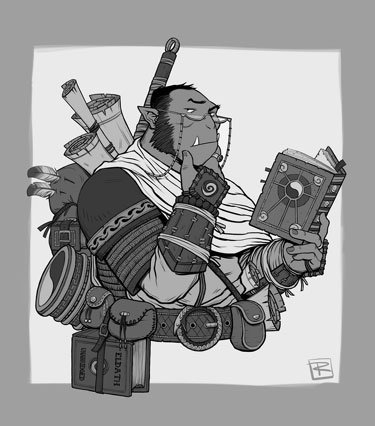He finds a political subtext in LOTR And Damien Walter disapproves.
Tolkien’s myths are profoundly conservative. Both The Hobbit and Lord of the Rings turn on the “return of the king†to his rightful throne. In both cases this “victory†means the reassertion of a feudal social structure which had been disrupted by “evilâ€. Both books are one-sided recollections made by the Baggins family, members of the landed gentry, in the Red Book of Westmarch – an unreliable historical source if ever there was one. A balanced telling might well have shown Smaug to be much more of a reforming force in the valley of Dale.
And of course Sauron doesn’t even get to appear on the page in The Lord of the Rings, at least not in any form more substantial than a huge burning eye, exactly the kind of treatment one would expect in a work of propaganda.
We’re left to take on trust from Gandalf, a manipulative spin doctor, and the Elves, immortal elitists who kill humans and hobbits for even entering their territory, when they say that the maker of the one ring is evil. Isn’t it more likely that the orcs, who live in dire poverty, actually support Sauron because he represents the liberal forces of science and industrialisation, in the face of a brutally oppressive conservative social order?
The Hobbit and Lord of the Rings aren’t fantasies because they feature dragons, elves and talking trees. They’re fantasies because they mythologise human history, ignoring the brutality and oppression that were part and parcel of a world ruled by men with swords. But we shouldn’t be surprised that the wish to return to a more conservative society, one where people knew their place, is so popular. It’s the same myth that conservative political parties such as Ukip have always played on: the myth of a better world that has been lost, but can be reclaimed by turning back the clock.






Francis W. Porretto
Tolkien himself said that LOTR is an intensely Catholic novel — and Catholicism is a very conservative creed. More to the point, though, the feudal structure of the lands to the west of the Anduin River was explicitly intended to promote maximum freedom for those who dwelt there. Law was minimal; a striking illustration of this occurs in the section, “The Scouring of the Shire.” If we could have a monarchy / nobility that functioned that well to promote and preserve freedom, I’d buy it in a heartbeat!
bob sykes
One of the reasons for the attraction of LOTR and “The Hobbit” is the desire for legitimacy and honor. Those are possible, if rare, in a monarchy, but impossible in a democracy.
In this regard, while the Founding Fathers were opposed to monarchy, and tried to circumscribe the Presidency (big fail), they also wrote a Constitution that actively suppressed democracy: the Bill of Rights, the Senate, the Judiciary, the Electoral College, and the refusal to enshrine the right to vote in the Bill of Rights.
Lee
I love that the Orc labels “The Hunger Games” anti capitalist. It well could have been written with that in mind, I don’t know. I’ve never read anything the author has said about. I went to college with her and she was a PITA liberal than, (and I was liberal), so she could have written YA fiction with that in mind.
But it actually strikes me as more anti-central planning, or anti-power in the hands of the few. In those books, the “party members” prosper — as they did in the Soviet Union and as they do in China, and Cuba while everyone else suffers — as they did in the Soviet Union and as they do in China, and Cuba. To me, whether intentional or not, it winds up being more anti-power in the bass of the few. Which isn’t the same as “anti-capitalism.”
Please Leave a Comment!